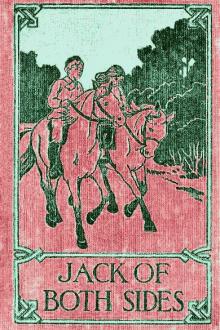
it a bit," replied Fauchery. "I certainly must make theacquaintance of your Nana before talking about her. Besides, I'vemade no promises."Then to put an end to the discussion, he introduced his cousin, M.Hector de la Faloise, a young man who had come to finish hiseducation in Paris. The manager took the young man's measure at aglance. But Hector returned his scrutiny with deep interest. This,then, was that Bordenave, that showman of the sex who treated womenlike a convict

mind is compelled to believe that theremust have been an Original One, that can have had no cause. This is ahard task for the Intellect, but in time it comes to see just where thetrouble lies, and ceases to interpose objections to the voice of thehigher regions of the self.And, the Intellect experiences a similar difficulty when it tries tothink of an Eternal--a That which is above and outside of Time. We seeTime in operation everywhere, and take it for granted that Time is areality--an actual

ne; she gave her great mind to great thoughts and great purposes when other great minds wasted themselves upon pretty fancies or upon poor ambitions; she was modest, and fine, and delicate when to be loud and coarse might be said to be universal; she was full of pity when a merciless cruelty was the rule; she was steadfast when stability was unknown, and honorable in an age which had forgotten what honor was; she was a rock of convictions in a time when men believed in nothing and scoffed at

up in astonishment, and as Mrs MacNab ran down the street to meet them with lean hands similarly spread, and her fierce face in shadow, she was a little like a demon herself. The doctor and the priest made scant reply to her shrill reiterations of her daughter's story, with more disturbing details of her own, to the divided vows of vengeance against Mr Glass for murdering, and against Mr Todhunter for being murdered, or against the latter for having dared to want to marry her daughter, and for

d the great statesmen' who make anti-socialist speeches: unless webelieve that they are deliberate liars and imposters, who to servetheir own interests labour to mislead other people, we must concludethat they do not understand Socialism. There is no other possibleexplanation of the extraordinary things they write and say. The thingthey cry out against is not Socialism but a phantom of their ownimagining.Another answer is that The Philanthropists' is not a treatise oressay, but a novel. My main

That saw the Possible like a dawn grow pale On the lost night before it, mute and vast. It dates remoter than God's birth can reach, That had no birth but the world's coming after. So the world's to me as, after whispered speech, The cause-ignored sudden echoing of laughter. That 't has a meaning my conjecture knows, But that 't has meaning's all its meaning shows. XXV. We are in Fate and Fate's and do but lack Outness from soul to know ourselves its dwelling, And do but compel Fate aside or

g. But as soon as he says something, passes on information in an altered form, or merely expresses an attitude--he becomes a reference point. He can be marked, measured and entered on a graph. His actions can be grouped with others and the action of the group measured. Man--and his society--then becomes a systems problem that can be fed into a computer. We've cut the Gordian knot of the three-L's and are on our way towards a solution."* * * * * "Stop!" Costa said, raising his

e thing of which the March Hare was incapable, it was running. Jack, who had found this out, checked him from making the attempt."Let Toppin go, Harey, and you stay with me," he said. There was a look of satisfaction on his face. It was fine to see even the smallest boarder chevying three day-boys! Toppin ran his fastest, and panted into the baths only a yard behind Simmons. "Why, if here isn't the kid! What the dickens has brought you after us, young un?" "I saw

Music RushA march is played on the piano and the children march from their seatsin single file around the room. As soon as the music stops, all rush toget into their seats. The last one in, must remain in his seat duringthe second trial. If there is no piano in the room, drumming on the topof a desk will do as well. Change Seat Relay The teacher claps her hands. This is the signal for all to shift oneseat back. The one in the rear seat runs forward and sits in the frontseat. The first aisle to

swung them to their shoulders, and then, without a word of salutation or even a glance at the parents, they noiselessly passed out of that narrow door and disappeared in the virgin forest. They were pagan Saulteaux, by name Souwanas and Jakoos.The Indian names by which these two children were called by the natives were "Sagastaookemou," which means the "Sunrise Gentleman," and "Minnehaha," "Laughing Waters." To the wigwam of Souwanas, "South

it a bit," replied Fauchery. "I certainly must make theacquaintance of your Nana before talking about her. Besides, I'vemade no promises."Then to put an end to the discussion, he introduced his cousin, M.Hector de la Faloise, a young man who had come to finish hiseducation in Paris. The manager took the young man's measure at aglance. But Hector returned his scrutiny with deep interest. This,then, was that Bordenave, that showman of the sex who treated womenlike a convict

mind is compelled to believe that theremust have been an Original One, that can have had no cause. This is ahard task for the Intellect, but in time it comes to see just where thetrouble lies, and ceases to interpose objections to the voice of thehigher regions of the self.And, the Intellect experiences a similar difficulty when it tries tothink of an Eternal--a That which is above and outside of Time. We seeTime in operation everywhere, and take it for granted that Time is areality--an actual

ne; she gave her great mind to great thoughts and great purposes when other great minds wasted themselves upon pretty fancies or upon poor ambitions; she was modest, and fine, and delicate when to be loud and coarse might be said to be universal; she was full of pity when a merciless cruelty was the rule; she was steadfast when stability was unknown, and honorable in an age which had forgotten what honor was; she was a rock of convictions in a time when men believed in nothing and scoffed at

up in astonishment, and as Mrs MacNab ran down the street to meet them with lean hands similarly spread, and her fierce face in shadow, she was a little like a demon herself. The doctor and the priest made scant reply to her shrill reiterations of her daughter's story, with more disturbing details of her own, to the divided vows of vengeance against Mr Glass for murdering, and against Mr Todhunter for being murdered, or against the latter for having dared to want to marry her daughter, and for

d the great statesmen' who make anti-socialist speeches: unless webelieve that they are deliberate liars and imposters, who to servetheir own interests labour to mislead other people, we must concludethat they do not understand Socialism. There is no other possibleexplanation of the extraordinary things they write and say. The thingthey cry out against is not Socialism but a phantom of their ownimagining.Another answer is that The Philanthropists' is not a treatise oressay, but a novel. My main

That saw the Possible like a dawn grow pale On the lost night before it, mute and vast. It dates remoter than God's birth can reach, That had no birth but the world's coming after. So the world's to me as, after whispered speech, The cause-ignored sudden echoing of laughter. That 't has a meaning my conjecture knows, But that 't has meaning's all its meaning shows. XXV. We are in Fate and Fate's and do but lack Outness from soul to know ourselves its dwelling, And do but compel Fate aside or

g. But as soon as he says something, passes on information in an altered form, or merely expresses an attitude--he becomes a reference point. He can be marked, measured and entered on a graph. His actions can be grouped with others and the action of the group measured. Man--and his society--then becomes a systems problem that can be fed into a computer. We've cut the Gordian knot of the three-L's and are on our way towards a solution."* * * * * "Stop!" Costa said, raising his

e thing of which the March Hare was incapable, it was running. Jack, who had found this out, checked him from making the attempt."Let Toppin go, Harey, and you stay with me," he said. There was a look of satisfaction on his face. It was fine to see even the smallest boarder chevying three day-boys! Toppin ran his fastest, and panted into the baths only a yard behind Simmons. "Why, if here isn't the kid! What the dickens has brought you after us, young un?" "I saw

Music RushA march is played on the piano and the children march from their seatsin single file around the room. As soon as the music stops, all rush toget into their seats. The last one in, must remain in his seat duringthe second trial. If there is no piano in the room, drumming on the topof a desk will do as well. Change Seat Relay The teacher claps her hands. This is the signal for all to shift oneseat back. The one in the rear seat runs forward and sits in the frontseat. The first aisle to

swung them to their shoulders, and then, without a word of salutation or even a glance at the parents, they noiselessly passed out of that narrow door and disappeared in the virgin forest. They were pagan Saulteaux, by name Souwanas and Jakoos.The Indian names by which these two children were called by the natives were "Sagastaookemou," which means the "Sunrise Gentleman," and "Minnehaha," "Laughing Waters." To the wigwam of Souwanas, "South